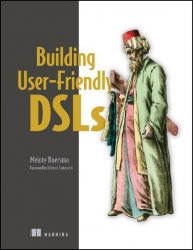 Название: Practical Insecurity: The Layman's Guide to Digital Security and Digital Self-defense
Название: Practical Insecurity: The Layman's Guide to Digital Security and Digital Self-defenseАвтор: Lyndon Marshall
Издательство: River Publishers
Год: 2023
Страниц: 192
Язык: английский
Формат: pdf (true)
Размер: 10.2 MB
This book provides practical advice for everyone on how to effectively secure yourself, your devices, and your privacy in an era where all of those things seem doomed. From acquiring software, to the ongoing flaws in email, to the risks of file sharing, and issues surrounding social media and social reputation, Practical Insecurity is the tool you need to maximize your self-protection in the digital world. Everyone has had a brush with cybersecurity―in some way. Our computer has gotten a virus, somebody you know has lost all their company’s data because of ransomware, someone has stolen our identity, a store we do business with has their computer system compromised―including our account―so we are offered free identity protection, and so on. It seems like everyday there is another bit of bad news and it often impacts us. But, the question largely goes what can I do as an individual or as the owner of a small business to protect myself against having my security compromised? Practical Insecurity provides the answers.
Key-loggers specialize in lurking in the memory of computers and recording the key strokes of computer users. The consequence of having a computer system infected with a key-logger is these programs also specialize in sending recorded information, such as passwords, to others over the internet. Consequently, Trojans are often the vehicle by which identities are stolen.
Rootkits represent another evil promulgated by Trojans. Rootkits are designed to get root or administrative privileges on the computer systems they infect. Because they get such high privileges, they are really hard to detect. In fact, the administrative level of access to the computer frequently means that the alien program is very hard to detect by the security programs which are supposed to defend against them.
Now, we live in a networked age. If it doesn’t network, we hardly consider it to be a computer. Worms specializing in copying themselves across networks, within networks, and filling up every space inside the victim machine rapidly become a problem. What makes worms more problematic is the damage is not often abrupt. The user experiences a gradual deterioration of the function of the computer. Gradually, it slows. Programs gradually cease functioning. At some point, the suffering machine becomes unusable.
Скачать Practical Insecurity: The Layman's Guide to Digital Security and Digital Self-defense
[related-news] [/related-news]
Комментарии 0
Комментариев пока нет. Стань первым!















